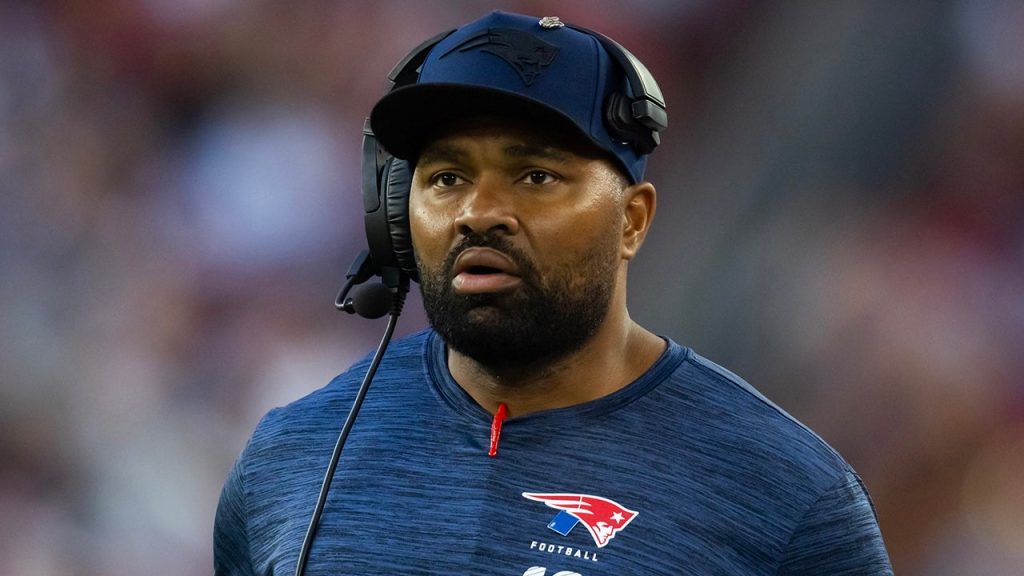ESPN analyst Stephen A. Smith delivered a scathing critique of the New England Patriots’ decision to dismiss head coach Jerod Mayo after just a single season, characterizing the move as a hasty and unfair judgment influenced by the availability of a more experienced candidate, Mike Vrabel. Smith, speaking on ESPN’s “First Take,” argued that Mayo wasn’t afforded sufficient time to cultivate his coaching abilities and guide the team to success, given the inherited roster limitations and the overall performance during the season. He pointedly attributed the Patriots’ decision to their desire to secure Vrabel, a more seasoned coach, and preemptively block his potential move to a rival team like the New York Jets. This rapid dismissal, according to Smith, exemplified the ruthless nature of “Black Monday,” the day after the regular season’s conclusion when coaching changes are frequently announced.
Smith’s criticism underscored the perceived double standard in coaching evaluations, highlighting the dismissal of Doug Pederson from the Jacksonville Jaguars as a justified move while contrasting it with Mayo’s premature termination. He argued that the Patriots’ internal sentiment towards Mayo shifted negatively throughout the season, irrespective of Mayo’s own comments criticizing the team’s lack of resilience. Smith posited that the allure of landing Vrabel significantly influenced the decision to dismiss Mayo, precluding Mayo from fully demonstrating his coaching potential. This assertion suggested that the Patriots prioritized securing a perceived “sure thing” over nurturing a promising, albeit less experienced, coach.
The Patriots’ owner, Robert Kraft, in his official statement announcing Mayo’s dismissal, acknowledged the difficulty of the decision, highlighting his long-standing relationship with Mayo and his initial belief in Mayo’s leadership potential. Kraft’s statement emphasized Mayo’s contributions as a player, team leader, and member of the coaching staff, acknowledging the risk of losing him to other teams interested in his coaching abilities. This, according to Kraft, prompted the initial decision to appoint Mayo as head coach. However, Kraft also expressed his disappointment with the team’s recent performance, emphasizing the need for improvement to meet the expectations of the Patriots’ loyal fanbase.
Kraft’s justification for the dismissal centered on the team’s subpar performance and a desire to expedite the return to championship contention. This statement, while acknowledging Mayo’s potential, ultimately prioritized immediate results over long-term development, suggesting a sense of urgency within the organization to reclaim its former glory. The juxtaposition of Kraft’s initial faith in Mayo and his subsequent dismissal underscores the pressure to deliver results in the competitive NFL landscape, where even a single season can significantly impact a coach’s tenure.
The situation highlights the precarious nature of coaching positions in professional sports, particularly in high-pressure environments like the New England Patriots, where sustained success is an expectation. The rapid turnover of coaches, often after short stints, raises questions about the fairness of evaluations and the opportunity afforded to develop coaching skills. While Kraft’s statement conveyed respect for Mayo, the underlying message emphasized the prioritization of immediate results and the perceived necessity to pursue a coach with a proven track record, like Vrabel.
This incident also underscores the complexities of coaching transitions and the influence of external factors, such as the availability of other desirable candidates, on personnel decisions. While publicly acknowledging the difficulty of the decision and Mayo’s positive attributes, Kraft’s actions ultimately reflect the prevailing sentiment in professional sports: winning trumps all, and patience for rebuilding projects can be limited, even for promising young coaches. The conflicting narratives presented by Smith and Kraft expose the inherent tensions between long-term development and the immediate demand for results, a dilemma faced by many organizations striving for sustained success in the fiercely competitive world of professional sports.

